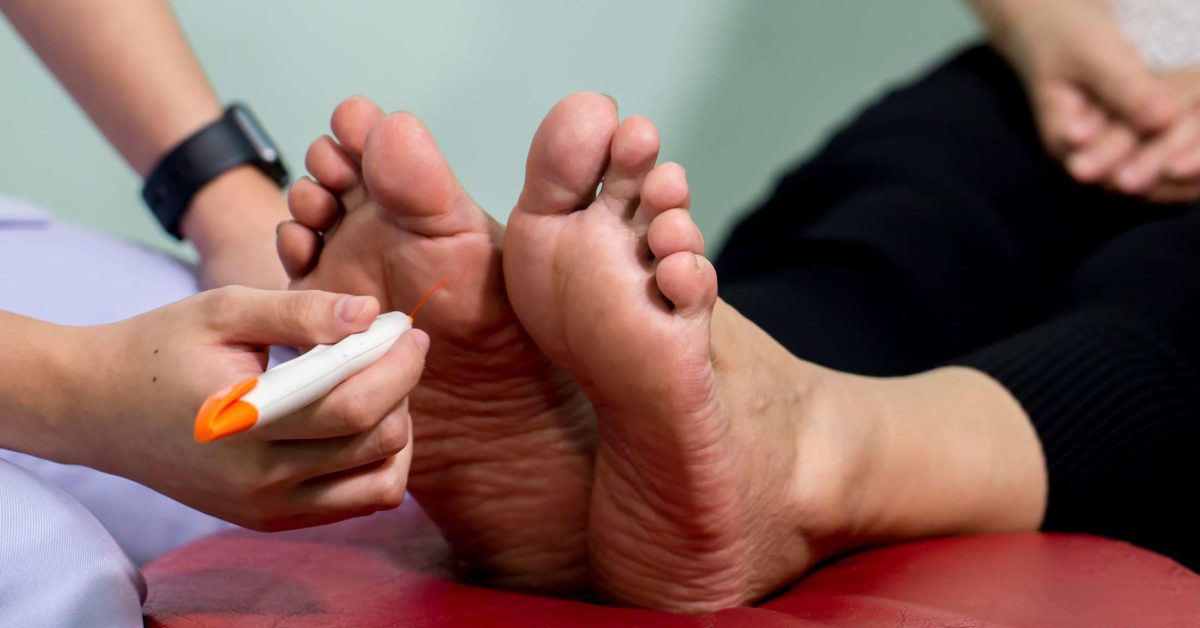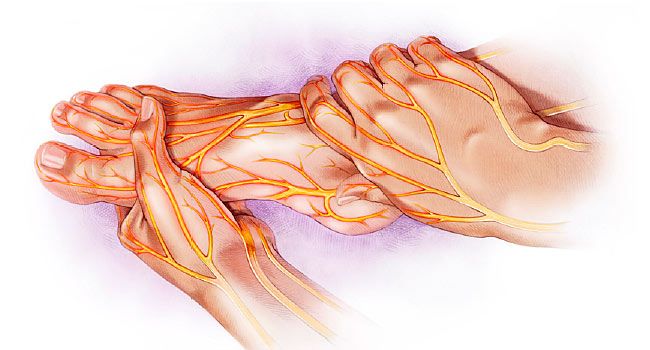
Nerve damage or neuropathy is referred to as a wide-ranging condition requiring intensive treatments. The term is closely associated with peripheral neuropathy. However, there is no one single condition, rather a range of health problems that involved more or less damage to peripheral nerves. While these conditions can be from mild to chronic, you can follow certain steps to prevent or manage them through a modified lifestyle, diet routine, and medical treatment.
Table of Contents
What is Peripheral Neuropathy?
Peripheral neuropathy is damage or impairment to one or more peripheral nerves. The message that is being transmitted from the central to peripheral nervous system will be disturbed. The condition is further divided into two major categories.
Acute peripheral neuropathy: It is the sudden or rapid beginning of neuropathy.
Chronic peripheral neuropathy: It develops slowly over the period of several months and becomes constant. The condition is chronic in nature.
Causes
Many people around the world suffer from peripheral neuropathy for one or more reasons. Yet the most common one is diabetes. It is found that many diabetic people sooner or later develop neuropathy at some point. A few other frequently observed causes include:
- Intake of certain medication such as chemotherapy drugs
- It develops through genes as well since some people have this condition in the family history
- The likelihood of developing peripheral neuropathy increases with age
- Any type of arthritis particularly the one that involves the back can trigger the condition
- Alcohol addicts are more at risk of developing it
- If you are suffering from certain neurological disorders such as fibromyalgia
- Any severe injury to the peripheral nerves
Diagnosis and Treatment
For the diagnosis and treatment for peripheral neuropathy, you can visit a physician or podiatrist who specializes in dealing with diabetic patients. This detailed analysis is made taking account of multiple factors such as physical examination, past and existing health condition, and the reported symptoms. You are more likely to ask for a blood test in order to check the sugar level since diabetes or high blood sugar can be a major cause of peripheral neuropathy as already mentioned above.
If we talk about the treatment options, there is no one solution or treatment available. Instead, a combination of treatments is executed to slow down the disease progression, minimize pain, keep up with better foot health and improve the overall quality of life. Further, they may prescribe you certain medications to relieve those symptoms. You will probably go through foot evaluation to figure out any underlying infections or injuries. Also, the doctor will recommend you a routine program so you can take care of your feet at home as well. If you are suffering from peripheral neuropathy, make sure to get your feet thoroughly checked a minimum once a year.
Medication/Drug Treatment for Neuropathic Pain
A few medications that are commonly recommended to reduce neuropathic pain include:
- Use of drugs – For instance, carbamazepine
- Antidepressants – Venlafaxine
- Opioid Painkillers – Tramadol (they come with warnings as well)
At the same time, the doctor may prescribe skin patches for limited and temporary pain relief. These are sort of bandages.
Manage Neuropathy
The use of anti-inflammatory drugs such as ibuprofen can help in effective pain management. You can conveniently find them at a nearby drug store. Also, you may want to use certain creams and topical ointments to ease the pain. If the condition is caused by single nerve damage, the treatment will only involve that specified nerve.
The treatment approach primarily depends on whether the nerve compression is immobile or transient. The peroneal nerve can be reversible by preventing the root cause of nerve compression. For instance, if you are experiencing ulnar nerve palsy, you should avoid leaning on the damaged elbow. You are more likely to be advised to rest and use heat or ice packs for pain relief.
On the other hand, if you are experiencing carpal tunnel syndrome you will be probably recommended conservative therapy involving multiple factors – ultrasound, corticosteroid drugs, wrist splint, and more. In case the single-nerve neuropathy is not improving, surgery may be the last option to consider. This is particularly the case if the nerve compression is fixed such as if you suffer from any tumor. You must consult a specialized doctor if:
- You are experiencing severe pain
- Pain is restricting routine activities and affecting the quality of life
- Worsening underlying health condition
Therapies
In addition, multiple therapies and procedures may also apply to ease painful symptoms. These commonly include:
- Transcutaneous electrical nerve stimulation (TENS) requires electric current penetration in the skin at varied frequencies. The therapy is executed for approximately half an hour once a month.
- Certain inflammatory conditions can be treated with plasma exchange. The procedure involves blood removal along with antibodies and proteins and returns the blood back to your body.
- In immune globulin therapy, proteins working as antibodies will be penetrated into your body. These are referred to as immunoglobulins.
- If your body muscles are weakening, physical therapy can help in recovering the movement. You may also require a walker or foot braces for improved support.
- In extreme cases such as a tumor, you may need surgery to minimize pressure on the nerves.
Everything about Diabetic Neuropathy
Diabetic neuropathy is a complication of diabetes type 1 and type 2. It’s a serious problem resulting from high sugar levels in the long term. The condition gradually develops – it can take several months or even more. If you are diabetic and experiencing any symptoms such as weakness in the body especially in hands or feet, pain, tingling, numbness you must consult a doctor right away. These are considered the primary symptoms of peripheral neuropathy. In the worst circumstances, the ulcer may develop on your foot.
If you are suffering from long-term peripheral neuropathy that means you are more susceptible to infections and injuries. In critical cases, it can even lead to amputation. The different types of conditions can affect one or more areas of your body and therefore you are more likely to experience different symptoms. For all diabetic patients, we encourage you to regularly check and evaluate your blood glucose levels.

The condition can be prevented if you are able to manage blood glucose effectively. All you need to do is monitor your blood glucose levels, take medication as recommended, manage a healthy diet routine and stay physically active. At the same time, make sure to work closely with the doctor for diabetic neuropathy treatment and to improve the progress. With proper care, you are sure to minimize damage to the nerves and prevent any complications.
Wrapping Up
It won’t be exaggerating to say that prevention is the best treatment. Keep your blood sugars in the normal range to prevent the condition from worsening or developing any other complication. If your condition is because of frequent alcohol intake, try to avoid it for your well-being. Further, natural remedies can help in easing pain. Make sure to consult your doctor on time and actively follow the recommended treatment program.
